Hostility will only lengthen the political deadlock

Amid rising political tensions following BNP's declaration of a one-point movement for the government's resignation in favour of an election under a non-party interim administration, we're alarmed to see efforts that will further inflame tensions. On Wednesday, about 11,000 BNP supporters were sued over clashes between the former and the activists of Awami League and police personnel. The cases were filed in Dhaka and seven other districts where the clashes took place during BNP's road march on Tuesday, which saw the death of one of its activists. There were more clashes on Wednesday, too, so more cases are likely to follow. And in typical fashion, there were thinly-veiled threats of retaliation and resistance in equal measure.
All this is a chilling indication of what awaits the country should things continue along the current trajectory. But we must ask: since both ruling and opposition camps claim to be serving the interests of the public, how "served" should the latter feel after a turbulent week of heated exchanges, ominous threats and violent confrontations? Besides the death of Sajeeb Hossain, a Krishak Dal activist, hundreds of people were also injured during BNP's two-day road march programme. Public properties were vandalised in many areas. People on the streets endured unimaginable suffering. Who will take responsibility for all that?
The combination of attacks and legal intimidation that the ruling camp appeared to endorse in a bid to weaken the BNP's street campaigns is a potent but dreadful tactic, one that violates its right to peaceful assembly. Often, violence was instigated after police, followed by overenthusiastic ruling party activists, swooped on BNP marches in the name of preventing public suffering. We have seen this tactic used many times before. Continuing along this line is not only detrimental to the democratic process, but will lengthen the present political deadlock and push any chance of reaching consensus on the composition of the election-time government further away. This is totally unacceptable.
The political parties, especially Awami League and BNP, owe it to the public to give dialogue and debate – not violence or other forms of intimidation – a chance to resolve their issues. Awami League in particular, as the party in power, must show its willingness to participate in a peaceful process to find solutions. We don't have much time ahead of the national election. And the country cannot continue to be in a state of fear and uncertainty. So it is high time the political parties found their way back to the negotiating table. Meanwhile, any harassment of the opposition leaders and activists must also stop.

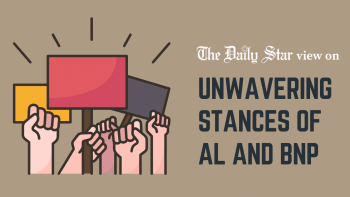
 For all latest news, follow The Daily Star's Google News channel.
For all latest news, follow The Daily Star's Google News channel. 
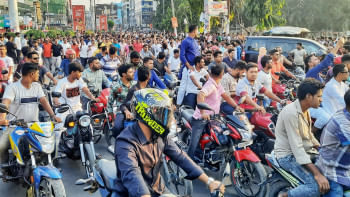


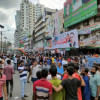
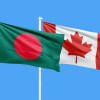
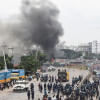
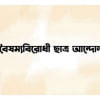
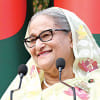


Comments